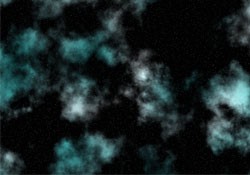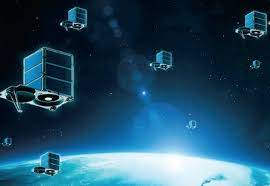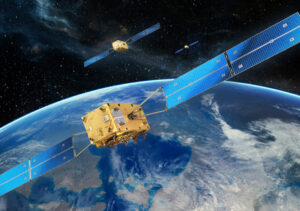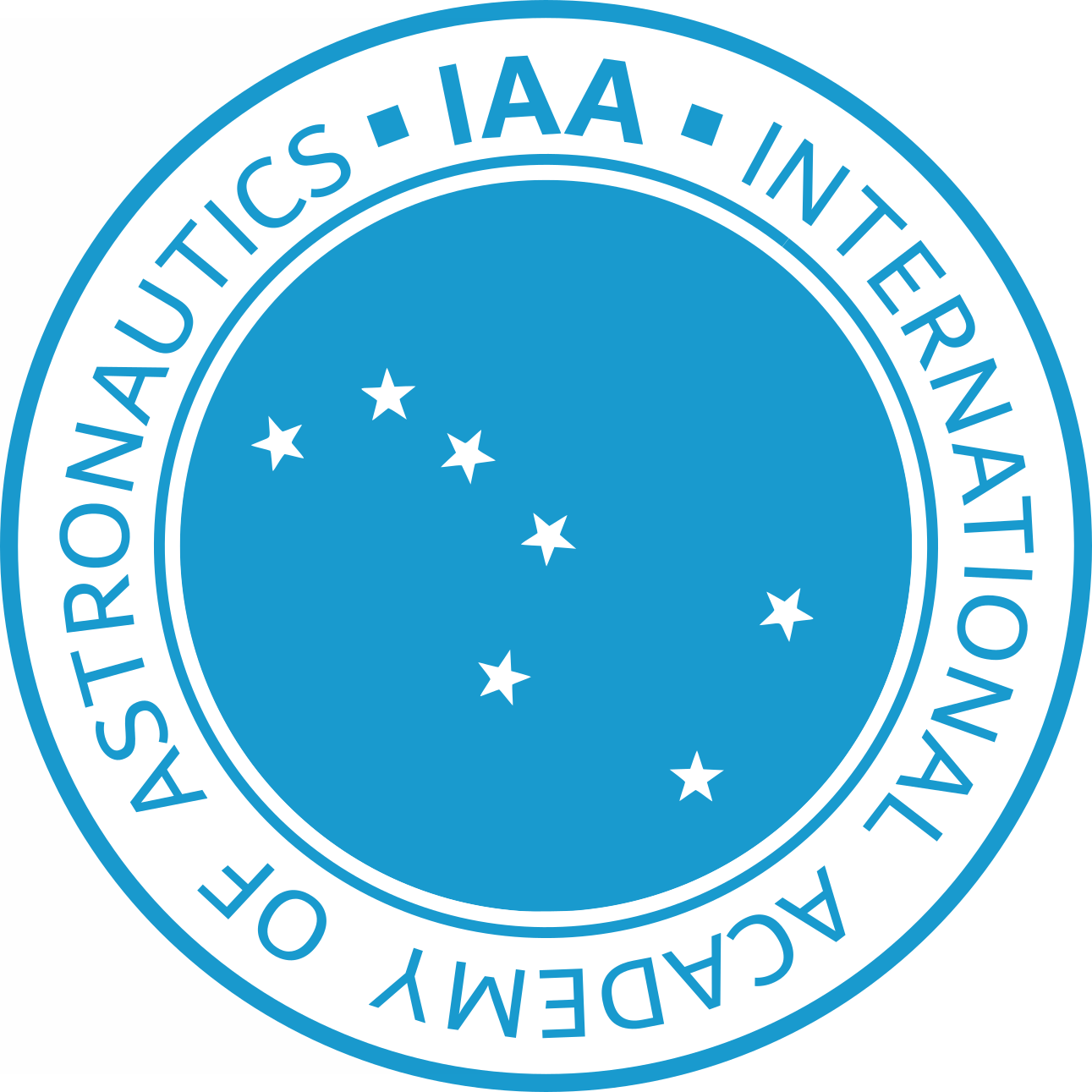The International Academy of Astronautics (IAA) is offering participation in several IAA studies and projects.
Calls for Studies & Projects
- How to Respond to Calls
- SG 1.16 - Cosmic Ray Events
- SG 2.19 - Thromboembolism in Space
- SG 3.35 - Artificial Intelligence
- SG 4.27 - AI Small Sat. Constellation
- SG 5.18 - Space Disasters Management
- SG 5.19 - Space Traffic Management
- SG 5.20 - Satellite Collision Avoidance
- SG 5.21 - Protect Dark & Quiet Sky
- SG 6.16 - STEM/STEAM Challenge
- PR 5.1 - LTS guidelines
- PR 5.2 - Space Sustainability
- PR 5.3 - Manoeuvre Coordination
- PC 5.4 - STM Program Cttee
How to respond to the Calls for Participating in IAA Studies & Projects
In this section the International Academy of Astronautics announces the various opportunities to join an IAA study group or an IAA project. The announcement includes information about accessibility for non-members of the Academy including students, young professionals, etc. Clicking on the study title will allow more information about the Study Group proposal, Study Group leaders and initial membership. Interested candidates in any of the above studies must send by email to IAA office the study identification number along with their name, address, current work activity and short biography.
 Any person interested may apply to join the group open to non members of the Academy, subject to appropriate qualification. The persons interested in participating may contact by email the IAA office or call at 33 1 47 23 82 15. The work of the international team is on volunteer basis with primarily use of internet, no travel required.
Any person interested may apply to join the group open to non members of the Academy, subject to appropriate qualification. The persons interested in participating may contact by email the IAA office or call at 33 1 47 23 82 15. The work of the international team is on volunteer basis with primarily use of internet, no travel required.
Ionizing radiation sources such as solar energetic particles and galactic cosmic radiation may cause unexpected errors in imaging and communication systems of satellites in the Space environment. The daily observations of the cosmic ray intensity carried out by remote sensing and ground-based instrumentation during the period 1/8/2022 to 14/8/2025 will be analyzed to study the observed extreme events. The high values of this parameter will be collected to find out the law they obey and will be compared with the corresponding laws followed by associated meteorological parameters. Based on this law new nowcasting methods will be developed for extreme cosmic rays’ events that may cause interference to the satellites electromagnetic wave signals or electronic system, telecommunications and problems with transportation and several disasters. The selection of the best nowcasting method will provide a novel nowcasting model that will be based on the innovative domain of “natural time”.
 Any person interested may apply to join the group open to non members of the Academy, subject to appropriate qualification. University students (Engineer Institute, Master, and PhD) are welcomed. The persons interested in participating may contact by email the IAA office or call at 33 1 47 23 82 15. The work of the international team is on volunteer basis with primarily use of internet, no travel required.
Any person interested may apply to join the group open to non members of the Academy, subject to appropriate qualification. University students (Engineer Institute, Master, and PhD) are welcomed. The persons interested in participating may contact by email the IAA office or call at 33 1 47 23 82 15. The work of the international team is on volunteer basis with primarily use of internet, no travel required.
Recently a diagnosis of deep venous thrombosis (DVT) was made during a long duration ISS mission, which may lead to a potentially fatal pulmonary embolism (PE). While DVTs can occur without PEs, the latter is always preceded by a DVT. Diagnosis of DVT can be challenging and may even be missed, even when PE is diagnosed. Thus, clinicians usually use the term Venous Thromboembolism (VTEs) to describe a pathology that includes both DVT and PE.
It is vital to understand the pathophysiology that may modulate VTE risk and its clinical manifestation in microgravity, which may differ from that on Earth
 Any person interested may apply to join the group open to non members of the Academy, subject to appropriate qualification. University students (Biology, medicine, Engineer Institute, Master, and PhD) are welcomed. The persons interested in participating may contact by email the IAA office or call at 33 1 47 23 82 15. The work of the international team is on volunteer basis with primarily use of internet, no travel required.
Any person interested may apply to join the group open to non members of the Academy, subject to appropriate qualification. University students (Biology, medicine, Engineer Institute, Master, and PhD) are welcomed. The persons interested in participating may contact by email the IAA office or call at 33 1 47 23 82 15. The work of the international team is on volunteer basis with primarily use of internet, no travel required.
The objective of this study is to give an expert and complete outlook on the uses of Artificial Intelligence (AI) applied to space missions, and to compile a comprehensive space technical report on the mission requirements, progress, deficiencies, trends, and the key technologies of AI for space.
 Any person interested may apply to join the group open to non members of the Academy, subject to appropriate qualification. The persons interested in participating may contact by email the IAA office or call at 33 1 47 23 82 15. The work of the international team is on volunteer basis with primarily use of internet, no travel required.
Any person interested may apply to join the group open to non members of the Academy, subject to appropriate qualification. The persons interested in participating may contact by email the IAA office or call at 33 1 47 23 82 15. The work of the international team is on volunteer basis with primarily use of internet, no travel required.
To make practical mission strategy regarding satellite constellations around Mars, asteroids, comets, other small bodies such as Ceres and more.
There are unique challenges for such missions with multiple satellites in low-gravity environments that are different than on Earth, such as Navigation, formation flying, artificial intelligence, autonomous operations, and more. There is also challenging to perform these missions with low cost less than a few million dollars. Such a constellation would perform autonomous formation flight, collaborative imaging and coordination, on-board processing of large amounts of data using AI (Artificial Intelligence), and high-level commanding from Earth.
To achieve this goal, some of feasible case study what kind of satellite constellations/formation flight (satellite numbers/size/function/orbit profile/AI implementation) is more applicable for asteroids or other small body mission and we will take an example from the latest planned missions as reference. The most expected asteroid missions currently planned are Lucy and Psyche Asteroid Missions from NASA (early 2020s and 2030). So this study group covers both feasible case study and example of actual applicable missions.
 Any person interested may apply to join the group open to non members of the Academy, subject to appropriate qualification. The persons interested in participating may contact by email the IAA office or call at 33 1 47 23 82 15. The work of the international team is on volunteer basis with primarily use of internet, no travel required.
Any person interested may apply to join the group open to non members of the Academy, subject to appropriate qualification. The persons interested in participating may contact by email the IAA office or call at 33 1 47 23 82 15. The work of the international team is on volunteer basis with primarily use of internet, no travel required.
Based on the reports of the previous working groups, this study will deliver a comprehensive report, including opportunities offered by new scientific results, the availability of new operational space systems and the potential role of the emerging private sector.
It will cover the main stages of the crisis cycle: prevention and risk assessment, alert and anticipation, emergency response and post-disaster.
 Any person interested may apply to join the group open to non members of the Academy, subject to appropriate qualification. The persons interested in participating may contact by email the IAA office or call at 33 1 47 23 82 15. The work of the international team is on volunteer basis with primarily use of internet, no travel required.
Any person interested may apply to join the group open to non members of the Academy, subject to appropriate qualification. The persons interested in participating may contact by email the IAA office or call at 33 1 47 23 82 15. The work of the international team is on volunteer basis with primarily use of internet, no travel required.
The proposed study asks how national governments can use the Space Sustainability Rating as part of their domestic regulation and authorization of space launches and operations. What would be the implications if national governments required a certain level of performance based on the Space Sustainability Rating for operators applying for approval to launch? Is it more effective for governments to require minimally sustainable actions or to incentivize spacecraft operators to identify innovative ways to be as sustainable as possible? This study will draw insights from engineering, policy and economics to address these and related questions. The results will recommend to national governments how they can make use of the Space Sustainability Rating as a tool to increase the sustainable behavior of space actors.
 Any person interested may apply to join the group open to non members of the Academy, subject to appropriate qualification. The persons interested by giving lectures or courses are most welcome and may join the group or contact by email the IAA office or call at 33 1 47 23 82 15. The work of the international study team is on volunteer basis with primarily use of internet, no travel required. Expenses will be covered for the persons involved in the teaching work in space emerging countries which is the core subject of the study.
Any person interested may apply to join the group open to non members of the Academy, subject to appropriate qualification. The persons interested by giving lectures or courses are most welcome and may join the group or contact by email the IAA office or call at 33 1 47 23 82 15. The work of the international study team is on volunteer basis with primarily use of internet, no travel required. Expenses will be covered for the persons involved in the teaching work in space emerging countries which is the core subject of the study.
Several commercial companies, as well as other nations, have proposed to deploy or are deploying many satellites in Low Earth Orbit (LEO). These large constellations will greatly increase the number of satellites operating in relatively narrow regions of space. The added space traffic in these regions will create many close approaches between the member of the large constellations and other space operators. These close approach situations can necessitate a collision avoidance maneuver to avoid a potential collision. Should both satellites have maneuvering capability, the question of how the overall collision avoidance procedures should be executed is raised. The large constellations can employ automated collision avoidance systems which interact differently than conventional human-in-the-loop systems. Interactions between an automated system and another operational satellite or between two automated systems presents new challenges for executing effective collision avoidance. This IAA study will examine the issues and strategies of establishing a set of “Rules of the Road” in collision avoidance maneuvering. In this study, we will examine current strategies for satellite systems, detailing their strengths and shortcomings, to identify collision avoidance maneuver planning and execution best practices that both increase the level of safety and maintain equity particularly in the context of new space operations techniques and situations.
 Any person interested may apply to join the group open to non members of the Academy, subject to appropriate qualification. University students (Law, space law, economics, Engineer Institute, Master, and PhD) are welcomed. The persons interested in participating may contact by email the IAA office or call at 33 1 47 23 82 15. The work of the international team is on volunteer basis with primarily use of internet, no travel required.
Any person interested may apply to join the group open to non members of the Academy, subject to appropriate qualification. University students (Law, space law, economics, Engineer Institute, Master, and PhD) are welcomed. The persons interested in participating may contact by email the IAA office or call at 33 1 47 23 82 15. The work of the international team is on volunteer basis with primarily use of internet, no travel required.
This IAA study will conduct transdisciplinary research on the required algorithms, methods, policies, and governance required to successfully achieve the goals of protecting the dark and quiet skies, and work as a partner to the IAU Centre to transition and integrate the results into its framework. There are two main factors to purse regarding the effects and impacts of satellites: the amount of energy they (1) reflect from sunlight and Earth albedo (2) emit from radio transmissions and thermal radiation and given these, how then to prevent or minimize these effects. Satellite producers are in the best position to positively affect these since some part of the prevention or minimization can be accommodate in the very design of the satellite itself. Legal mechanisms that pass on responsibility over these reflections and emissions to satellite producers, will be explored (e.g. Extended Producer Responsibility). This study will review the views of government and private sector actors toward Extended Producer Responsibility (EPR) and assess how EPR can be made to accommodate the effects and impacts of satellites on dark and quiet skies for astronomers, planetary defense and Near Earth Object (NEO) hunters, as well as the general public. Moreover, the study would also assess how the EPR could be embedded within.
 Any person interested may apply to join the group open to non members of the Academy, subject to appropriate qualification. University students (Law, space law, economics, Engineer Institute, Master, and PhD) are welcomed. The persons interested in participating may contact by email the IAA office or call at 33 1 47 23 82 15. The work of the international team is on volunteer basis with primarily use of internet, no travel required.
Any person interested may apply to join the group open to non members of the Academy, subject to appropriate qualification. University students (Law, space law, economics, Engineer Institute, Master, and PhD) are welcomed. The persons interested in participating may contact by email the IAA office or call at 33 1 47 23 82 15. The work of the international team is on volunteer basis with primarily use of internet, no travel required.
The main goal of the IAA Multi-Commission Study Group “STEM/STEAM for Space: Grand Challenges” is to determine what needs to be done to enhance the impact of space science and technology on Science, Technology, Engineering, Art and Mathematics (STEAM) education for the improvement all of society and, eventually, for the spread of mankind into the cosmos. This will involve the investigation of the long-term impact of STEM/STEAM education on Space Science and Technology for the future of Space Exploration. It will be carried out by the elite body of the IAA and its ambassadors from each IAA commission, with the cooperation of the most prestigious national academies around the globe through joint workshops, video-conferences, meetings. Annual reports will be used to make valuable recommendations for a road-map of action for all participants.
 Any person interested may apply to join the group open to non members of the Academy, subject to appropriate qualification. The persons interested in participating may contact by email the IAA office or call at 33 1 47 23 82 15. The work of the international team is on volunteer basis with primarily use of internet, no travel required.
Any person interested may apply to join the group open to non members of the Academy, subject to appropriate qualification. The persons interested in participating may contact by email the IAA office or call at 33 1 47 23 82 15. The work of the international team is on volunteer basis with primarily use of internet, no travel required.
This IAA project will focus on the implementation of the UN COPUOS LTS Guidelines and specifically demonstrating how these could be implemented through several “use cases” or scenarios. Furthermore, this effort would bring together science and policy to demonstrate this implementation. This project could use simulated data and real data that people would volunteer to provide as part of the participation. The data available to infer compliance are heterogeneous in nature, and both human and physics-based information must successfully be combined and fused so that the conclusions drawn are statistically meaningful, accurate, and precise. Uncertainty Quantification is critical in this endeavor.
This IAA project will propose how we might measure compliance and lack thereof and in follow-¬up with the legal ramifications, provide the “burden of proof” if something happened as a consequence of not implementing the LTS Guidelines, and how to distinguish and quantify space object/actor behavior. Any data used should also be made available to the community so that anyone can analyze them at their leisure (i.e. replicability) and draw their own conclusions in the name of transparency.
 Any person interested may apply to join the group open to non members of the Academy, subject to appropriate qualification. The persons interested in participating may contact by email the IAA office or call at 33 1 47 23 82 15. The work of the international team is on volunteer basis with primarily use of internet, no travel required.
Any person interested may apply to join the group open to non members of the Academy, subject to appropriate qualification. The persons interested in participating may contact by email the IAA office or call at 33 1 47 23 82 15. The work of the international team is on volunteer basis with primarily use of internet, no travel required.
This project proposes to motivate the development of a Circular Space Economy that emphases, first and foremost, environmental pollution prevention (i.e. space debris mitigation), followed by space object (satellite and launch vehicle) reuse, recycling, and disposal. The focus is to eliminate the practice of space object abandonment, which has led to the current space sustainability and environmentalism problems. Within waste management frameworks there is an Extended Producer Responsibility (EPR) whereby responsibility for the end-of-life of a product falls upon the shoulders of those producing them. EPR for space would mean that satellite and launch providers would make these easily reusable and recyclable in the very design of the product. Satellite and launch providers could delegate this responsibility to third parties, called Producer Responsibility Organizations (PROs), such as orbital debris cleaning and satellite servicing companies.
The IAA will work on modeling and demonstrating how EPR could be effectively instantiated and implemented by space operators and launchers, to include the possibility of incorporating EPR within the Space Sustainability Rating led by the World Economic Forum.
 Any person interested may apply to join the group open to non members of the Academy, subject to appropriate qualification. The persons interested in participating may contact by email the IAA office or call at 33 1 47 23 82 15. The work of the international team is on volunteer basis with primarily use of internet, no travel required.
Any person interested may apply to join the group open to non members of the Academy, subject to appropriate qualification. The persons interested in participating may contact by email the IAA office or call at 33 1 47 23 82 15. The work of the international team is on volunteer basis with primarily use of internet, no travel required.
Very close to the original rationale “to operate in space … free from physical … interference”, we will face very soon some very concrete issues not only with defunct objects, but also operated spacecraft. The number of spacecraft operated at the same instance of time will roughly be tenfold in 2-3 years from now – multiplying the number of conjunction alerts. Every maneuver of a space object changes the scenario of upcoming conjunctions (for the maneuvering objects and everybody else). While the GEO community is pretty much organized in exchanging ephemeris and maneuver plans, the LEO community is less prepared. In GEO, manoeuvre coordination is still a manual process (as the problem is more simplistic), in LEO, we need an automated process in which operating centers trade off maneuver options among eachother automatically.
This IAA project would investigate a global standard for a communication protocol, through which maneuver options can be directly negotiated/optimized by centers in an IoT (Internet-of-things) approach.
 Any person interested may apply to join the group open to non members of the Academy, subject to appropriate qualification. The persons interested in participating may contact by email the IAA office or call at 33 1 47 23 82 15. The work of the international team is on volunteer basis with primarily use of internet.
Any person interested may apply to join the group open to non members of the Academy, subject to appropriate qualification. The persons interested in participating may contact by email the IAA office or call at 33 1 47 23 82 15. The work of the international team is on volunteer basis with primarily use of internet.
IAA Program Committee on 10th Space Traffic Management Conference, 27-28 February, 2024, Austin TX, USA. Program Committee members will make the selection of the best abstracts, prepare the preliminary program and will chair sessions.
We use cookies to make our website and shop effective, secure and user-friendly. For more information see our Privacy Policy. Use of this Site is subject to express terms of use. By using this site, you signify that you agree to our Privacy Policy and the use of cookies and agree to be bound by these Terms and Conditions.
